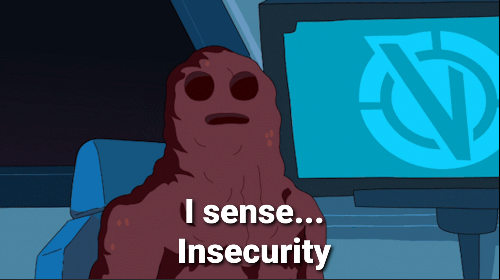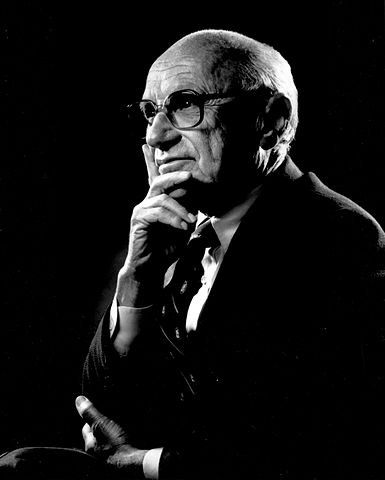Life is a fragile experience. It is unpredictable even at its best of times. Relationships are broken, loved ones are lost and, in some cases, families are torn apart.
But what if you could change all of that and start anew? To live life free from the unpredictability and irreplaceability of the real world.
The above is an excerpt from a now defunct hidden homepage associated with the psychological horror web series This Room does not exist found on the Youtube channel of the same name. The web series by Lexel Studios is an excellent look into the dangers that comes with the ever-blurring lines between reality and fantasy that technology such as virtual reality provides, and while I highly recommend the series to anyone who finds such topics fascinating, the web series is not the topic of this blog. Rather, I want to use the quote above as a catalyst to discuss one of never ending battles within the spirit of man: The dilemma that is the desire for safety versus the desire for freedom. Not only is this topic intensely interesting to me, I also see it as one of the most fundamental meta-discussions one can have, as it underpins basically every discussion about both politics and ethics, and by extension of the two, censorship, which is becoming an increasingly hot topic on the internet in the current year.
Being free implies possibilities for both creation and expression; when we are free, we can do the things we want, say the things we want to say and go the places we want to go without the fear of repercussion or punishment. However, as freedom also means the absence of the rules and guidelines that limits us, the concept of freedom also has inherently chaotic and insecure connotations. Conversely, security is a very positively laden word; who would not choose security over insecurity? When describing oneself as feeling secure it often implies that we are feeling an absence of the negative emotions of stress and insecurity. However, in order to impose security, it is necessary to implement rules and limit possibilities and in some cases, to a tyrannical degree. While the this phrasing of the dilemma freedom vs. safety, carries with it grand political overtones, it need not be applied only to a macro political scale. In fact, I will argue that every person has had some exposure to this dilemma throughout their lives: Some choose the inherently more insecure life as an entrepreneur because they value the freedom and possibilities that it offers, while others choose to work stable jobs in large companies because of the stability such employment offers and shudders at the thought of being self-employed. Some choose long-term partners with the hopes of raising a family, while others prefer multiple partners and scoff at the thought of children because of the inherent limit to their freedom that raising a child results in, etc.

In terms of political theory, the dilemma can be rephrased as the battle between collectivism vs. liberalism: Collectivist ideologies, such as socialism, fascism and communism emphasizes security of the group over the liberties of the individual, strong social safety nets even to the point of providing job guarantees, and seeks to impose control over the inherently chaotic forces of the market through the state ownership of the means of production and price controls, while liberal societies emphasizes protection of individual rights, limited or purely voluntary social programs and comparatively limited control of market forces. Throughout the twentieth century, the battle between these two overarching ideologies has swung back and fourth. From the extremely prolific and free times before WWI, where regulations were few, taxation low and the concept of passports was considered archaic by most large economies to the Cold War years, where as much as one third of the world’s population lived under communist government and the encouragement of a more active role of government even in the liberal democracies, such as with Lyndon B. Johnson’s Great Society in the US and the policies of the post-war Labour governments in Great Britain, to the resurgence of liberal values after the collapse of the Soviet Union and the new, almost anarchistic world of the internet that grew to become an indispensable part of modern life. As I have sought to describe, the two concepts of freedom and safety are inversely correlated: By choosing freedom and by ridding yourself of constraints, you open up new possibilities to act on that which was previously unavailable to you, but it inevitably comes at the expense of security, as these new possibilities also includes the possibility of failure or hardships. You can also always choose the safe path and exposing yourself to as little risk as possible, but by eschewing risk, you are also eschewing the potential rewards and possibilities of improvement that such risk brings with it.
On a personal level, how we choose to resolve this dilemma comes down to our personal preferences and temperament and for the most part, these choices are completely benign. However, it is when taken to the collective level that this dilemma can become dangerous, because it through government becomes very easy to attain security not at the expense of your own, but other people’s freedoms. The balance between freedom and safety on the personal level rests on the assumption that you can reap the benefits of the risks you take, i.e. that the private individual incurs both the risk and reaps the reward. However, it is becoming increasingly common for governments in the case of ‘fairness’ or in order to fund a social programs, such as universal income, to increasingly tax those, who has successfully created wealth through taking business risks, i.e. collectivizing the profits while keeping the risk private, and conversely, providing private gains through said universal income program and letting other tax payers foot the bill, i.e. collectivizing the risk. Taken to its extremes, this leads to the stagnation and even the collapse of a country’s economy; something which has catastrophic consequences of the livelihood of the citizens in that country, both immediate and long-term. The desire for safety is a normal reaction in times of great uncertainty, such as the ongoing COVID-19 pandemic, and it has been commonplace that citizens has looked to their governments to enact protective and in many cases, draconian emergency measures all in the name of preventing a public health catastrophe. However, it goes without saying that this comes at the expense of freedom, and as I touched upon in an earlier blog post such measures have a tendency of overstaying their welcome even long after the thing that they were supposed to combat are long gone. In the words of the economist Milton Freedman:
“There is no thing more permanent than a temporary government program”

Milton Freedman - picture from Wikipedia
The development described above is something I see as a more or less inevitable result of centralized government, and is incidentally one of the main reasons why I am a libertarian, but more alarmingly I see the same logic applied by the big tech companies in their regulation of the big social media platforms. In the name of combating hateful speech, Facebook and Twitter has taken to the blanket banning of certain words and even names (such as in the case of the British activist Tommy Robinson), that is, the protection of certain people’s feelings at the expense of other people’s freedom of expression. Like the stifling of economic action has deleterious effects on the economy, so too does the stifling of free expression have an equally deleterious effect on culture. The Canadian psychologist Jordan B. Peterson tells in one of his lectures about how regimes such as Nazi Germany and the Soviet Union that heavily censured both the press and the arts in order to suppress art and opinions that were detrimental to their political ideology quickly saw an ossification of the arts, where art itself devolved from being a manifestation of individual expression to a mere propaganda tool to further a political agenda set out by the ruling party.
Throughout my more political blogs, I have always sought to be the voice of optimism. While there are many things in the world that I would like to see changed, I will still steadfastly maintain that the world of today is the best the world has ever been, both in terms of safety and opportunity and the potential the internet provides both in terms of binding the world together and as a virtually bottomless repository for human knowledge accessible to anyone is absolutely unparalleled to anything in human history. However, this world rests on the premise that the world and the internet should continue to be free and to further this end, we need to be vigilant and not succumb to the inciting proposition it is to trade freedom to the collective for a fleeting feeling of safety, demand of our politicians that they do not forget that emergency measures are for emergency times only and not be afraid to explore alternate media platforms when the censorship of the dominant platforms become too severe. Finally, never let anyone tell you to stifle your desire to express yourself and remember the immortal words of Pink Floyd’s most profound songs Wish You Were Here:
And did they get you to trade
Your heroes for ghosts?
Hot ashes for trees?
Hot air for a cool breeze?
Cold comfort for change?
And did you exchange
A walk on part in the war
For a lead role in a cage?
Thank you for reading! If you like my content, please leave an upvote and a comment and please consider following me as well!